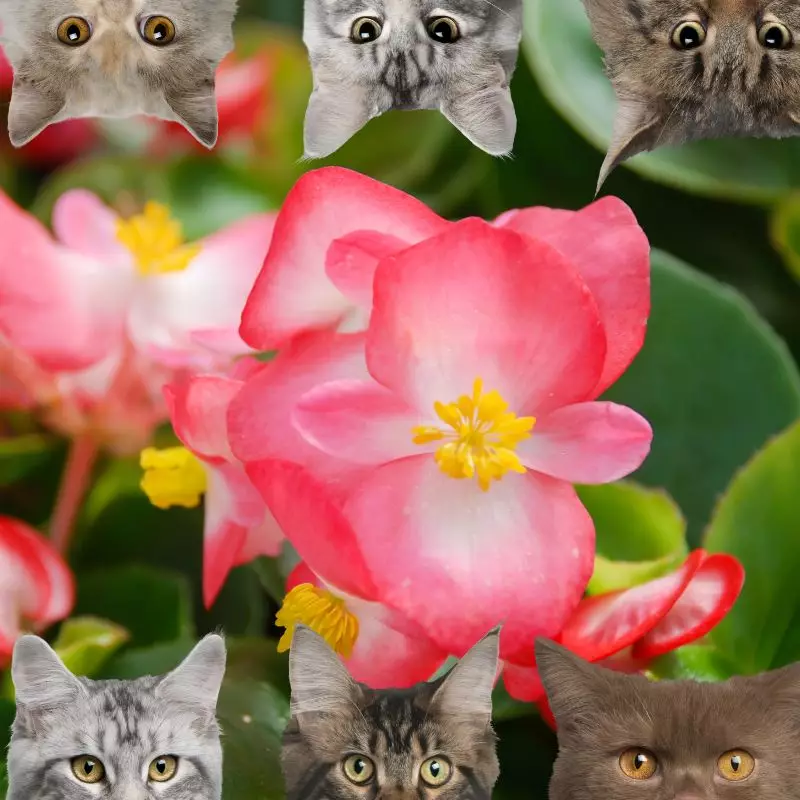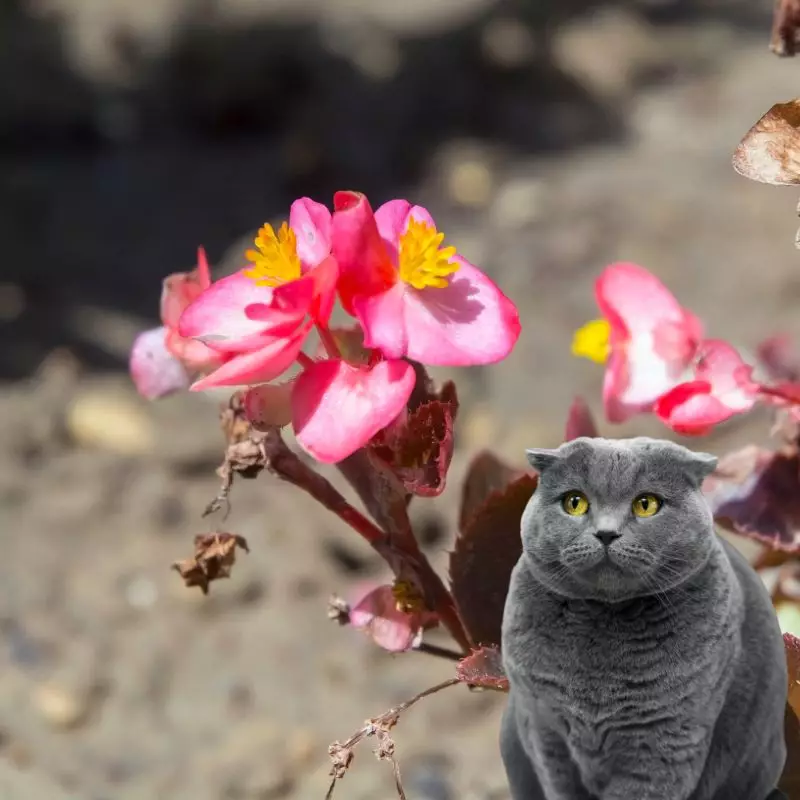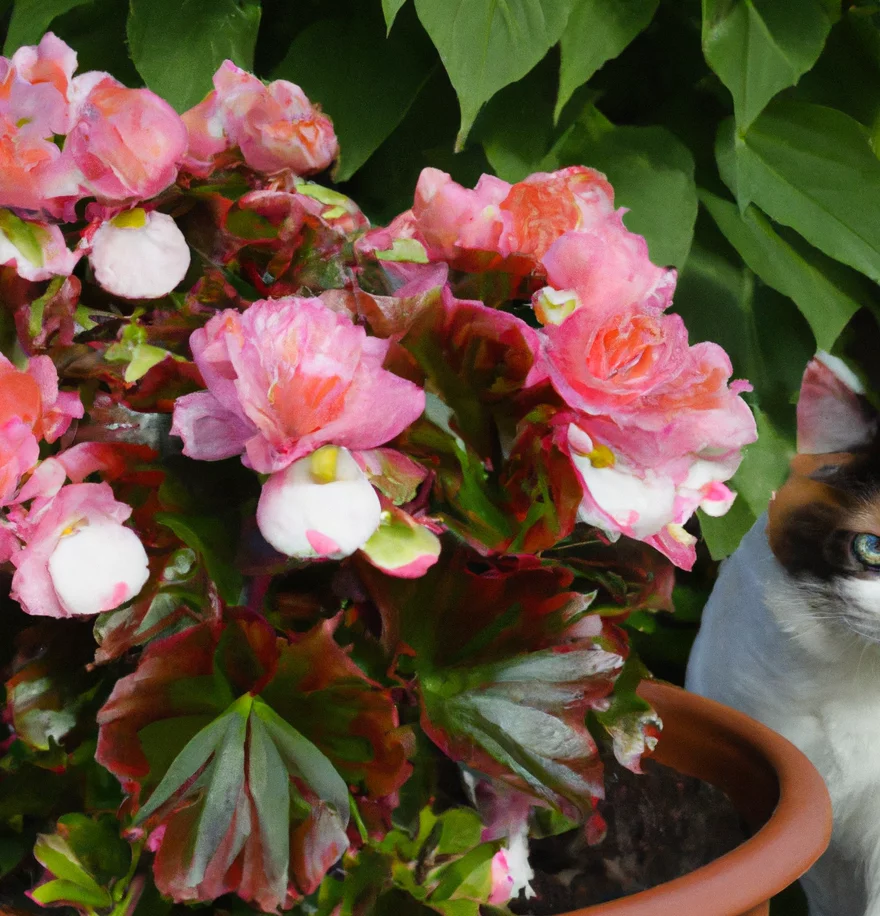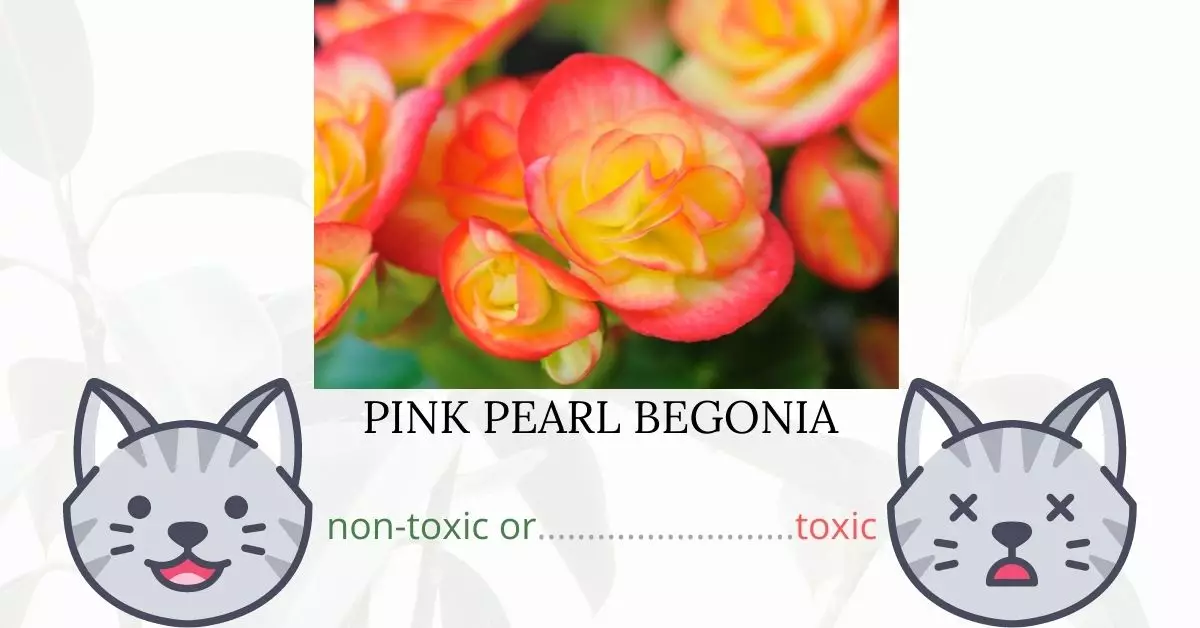Pink Pearl Begonia, a distinct cultivar rich in soluble calcium oxalates, unequivocally poses a threat to the well-being of cats. Soluble calcium oxalates are recognized as potent irritants capable of embedding within various tissues, leading to discomfort and irritation in cats. When exposed, the cat’s body reacts by vomiting and attempting to neutralize the acid with saliva, mitigating further discomfort and potential damage to the digestive tract. It is paramount for pet owners to be aware of the toxic nature of this plant to prevent any unintended harm to their feline friends.
This article is the culmination of meticulous research and collaboration with a panel of seasoned Doctors of Veterinary Medicine (DVMs), whose invaluable insights have enriched the accuracy and relevance of the information provided herein, focusing on Pink Pearl Begonia and its implications on cats. Through the collective knowledge and experience of these professionals, we strive to offer precise, up-to-the-minute information regarding the potential risks associated with various plants, aiming to heighten awareness and promote the well-being of pets. To further substantiate our findings, we have also referred to high-authority sources like ASPCA and PetMD, ensuring a comprehensive understanding of each plant’s impacts.
Clinical Signs of Pink Pearl Begonia Poisoning in Cats

While the toxicity of Pink Pearl Begonia is seldom fatal to cats, it can induce substantial discomfort and distress. When a cat comes in contact, inhales, or ingests the Pink Pearl Begonia plant, several clinical signs may manifest due to the presence of soluble calcium oxalates, which are potent irritants. Immediate veterinary attention is imperative if any of the following symptoms are observed to prevent escalation of complications.
- Excessive Salivation: This is usually the body’s immediate response to expel the irritant and neutralize the oxalates present in the plant, which are causing discomfort and irritation in the oral cavity.
- Oral Sores and Redness Around the Mouth: The contact of the irritant compounds with the oral mucosa causes inflammation and ulceration, leading to painful sores and redness around the mouth.
- Swelling of the Mouth and Tongue: The inflammatory response to the irritants causes swelling as the body tries to isolate the irritant compounds.
- Swallowing Problems: The swelling and irritation in the mouth can impede normal swallowing, making ingestion difficult.
- Lack of Appetite: The discomfort and pain due to oral sores and swelling can lead to reluctance in eating.
- Vomiting: This is a systemic response of the body trying to expel the ingested toxic compounds to prevent further internal damage.
- Dehydration: Frequent vomiting and lack of water intake due to swallowing problems can quickly lead to dehydration.
- Tremors: High levels of calcium oxalates can affect the nervous system and induce involuntary muscle contractions or tremors.
- Seizures: In severe cases, the neurological impact of the toxins can escalate to seizures, reflecting a heightened state of neurological distress.
- Kidney Failure: The oxalates can precipitate in the kidneys, obstructing normal function and potentially leading to renal failure if not addressed promptly.
Pet owners are advised to act with urgency and consult their veterinarian if their cat exhibits any of these symptoms after interacting with a Pink Pearl Begonia plant, to ensure the swift administration of appropriate medical interventions and support.
First Aid and Treatment of Pink Pearl Begonia Poisoning in Cats

If you caught your cat eating a piece of pink pearl begonia, remove the plant material from its mouth right away and flush it with water. You may give yogurt, milk, or cheese to your cat as this will precipitate some of the calcium oxalates and ease the discomfort.
Cats who are experiencing more severe stomach distress, prolonged vomiting, or diarrhea should be taken to the veterinarian. The veterinarian will keep a close check on the cat for signs of dehydration and offer fluid treatment if necessary.
Medications to ease the cat’s symptoms such as diphenhydramine or Benadryl for swelling and Kapectolin or sucralfate for a gastrointestinal upset may also be prescribed by the veterinarian as necessary.
Recovery from Pink Pearl Begonia Poisoning in Cats

In most cases, cats fully recover from pink pearl begonia poisoning within 12 to 24 hours after ingestion. Recuperation may take longer for cats that are experiencing more severe symptoms.
Prevention of Pink Pearl Begonia Poisoning in Cats
Although begonias adds aesthetic value to your gardens, you should avoid growing this plant if you have cats at home. Plant alternative non-toxic plants instead. Build terrariums and grow cat-friendly grasses that your nibbler cat can graze on.
If you love plants but have cats at home, check out these lists:





